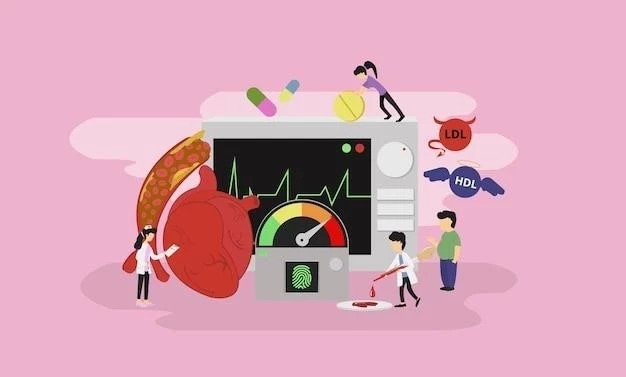Understanding Cholestasis
Explore the causes‚ symptoms‚ diagnosis‚ treatment‚ special cases‚ and lifestyle management of cholestasis․
Causes of Cholestasis
Cholestasis can be caused by gallstones‚ liver disease‚ infections‚ genetic factors‚ medications‚ or pregnancy-related hormonal changes․ Understanding these causes is crucial for effective management․ Consult a healthcare provider for personalized guidance․
Symptoms of Cholestasis
Recognize symptoms like jaundice‚ dark urine‚ fatigue‚ and itching․ Promptly seek medical attention if you experience these signs‚ as they may indicate cholestasis․ Early detection can lead to better treatment outcomes․ Make sure to communicate any concerns with your healthcare provider․

Diagnosis and Treatment
Proper diagnosis and treatment are key to managing cholestasis effectively․ Consult with healthcare providers for guidance․
Diagnosis of Cholestasis
Diagnosis involves blood tests‚ imaging studies‚ and liver function tests․ Your doctor will recommend specific tests to confirm cholestasis․ It’s crucial to follow their guidance for accurate diagnosis and appropriate treatment․ Seek professional medical advice if you suspect cholestasis symptoms․
Treatment Options for Cholestasis
Treatment may involve medications‚ lifestyle changes‚ and in severe cases‚ procedures․ It’s essential to follow your healthcare provider’s recommendations for managing cholestasis effectively․ Seek their guidance for personalized treatment options tailored to your condition․ Prioritize your health and well-being by staying informed and proactive in your treatment plan․
Special Cases of Cholestasis
Learn about cholestasis in pregnancy‚ complications‚ and infants․ Stay informed for optimal care․
Cholestasis in Pregnancy
Cholestasis in pregnancy can pose risks to both the mother and baby․ Consult your healthcare provider for proper management and monitoring․ Understanding the condition’s implications during pregnancy is crucial for ensuring a safe and healthy outcome for both mother and child․ Regular prenatal care is essential for addressing cholestasis-related concerns effectively․
Complications of Cholestasis
Cholestasis can lead to severe complications such as liver damage and malabsorption of fat-soluble vitamins․ Regular monitoring and timely intervention are essential to prevent and address these complications effectively․ Consult medical professionals for personalized guidance on managing potential complications associated with cholestasis․ Prioritize your health by being proactive in your care plan․
Cholestasis in Infants
Cholestasis in infants may require specialized care and monitoring․ If you suspect cholestasis in your baby‚ seek prompt medical attention․ Early detection and intervention are crucial for managing the condition effectively․ Consult pediatric healthcare professionals for guidance on addressing cholestasis in infants․ Stay informed and advocate for your child’s health and well-being․
Lifestyle Management
Explore lifestyle strategies to support cholestasis treatment and overall well-being․ Prioritize health and self-care․
Lifestyle Management for Cholestasis
Opt for a balanced diet‚ regular exercise‚ stress management‚ and adequate rest to support your health with cholestasis․ Consult healthcare providers for personalized lifestyle recommendations․ Prioritize self-care and well-being in your daily routine for optimal management of this condition․ Remember‚ small lifestyle changes can make a big difference in your overall health․
